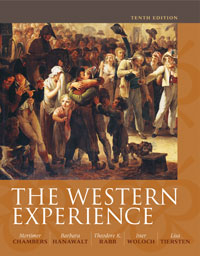| A) | Attempts by the powers in Europe to restore the dynasties and monarchical institutions (including the Bourbons in France) disrupted by the revolutionary and Napoleonic upheavals.
|
| B) | A loose agreement by the major European powers to act together to maintain the conservative order in Europe and repress liberal and nationalistic uprisings after 1815.
|
| C) | Russian intellectuals who opposed Westernization and saw Russia's unique institutions and culture as superior; some supported autocracy but also favored emancipation of the serfs.
|
| D) | A customs union established by Prussia among most states in the German Confederation that allowed for free movement of goods; promoted the economic unification of Germany.
|
| E) | British reform movement that believed that society should be based on "the greatest happiness for the greatest number," and that sound governments could make such calculations.
|
| F) | The Hungarian-speaking population of the Hapsburg Empire who began to push for Hungary's independence in the 1840s.
|
| G) | An artistic movement that rejected classical aesthetic forms and norms, and which emphasized personal experience, emotion, or spirituality.
|
| H) | An international congress that met from 1814 to 1815 to set peace terms for continental Europe after the Napoleonic Wars; notable for its creation of a European balance of power and the restoration of old dynasties.
|





